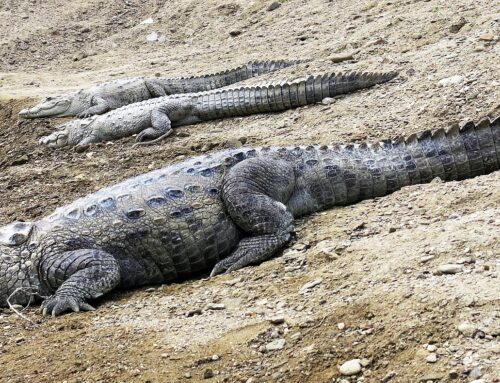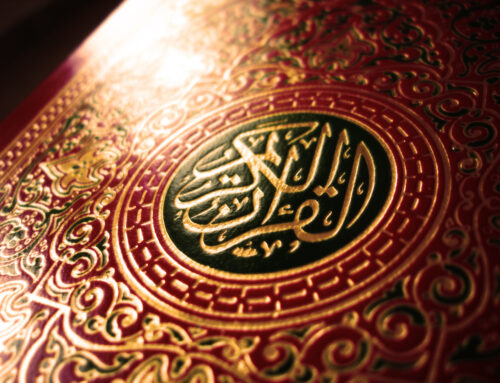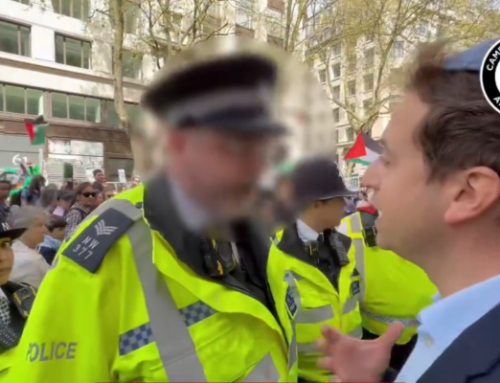Persecution of Christians in Iran, Part 1
by Ioannis E. Kotoulas
IPT News
May 22, 2023
Introduction to IPT Series on Christianity in the Middle East:
In the next few weeks and months, The Investigative Project will be publishing a comprehensive multi-part series on the topic surrounding the persecution of Christians in the Middle East. More than a century ago Christians once enjoyed vibrant communities throughout the Middle East, representing 20 percent of the region’s population before World War I. Today, their population stands at 5 percent.
With their rich cultural traditions and geographical juncture of civilizations, it was the initial cradle of Christianity. Now in some places, they are on the brink of eradication due to widespread persecution from oppressive regimes and radical Islamist movements. Yet, there are a few new bright spots with several Muslim countries openly seeking to accommodate new Christian immigrants and even allow for the first time the building of churches.
For decades, Christians have been fleeing the region in dramatic numbers, seeking security and the right to freely practice their faith at the cost of the world’s earliest Christian communities. They are persecuted, often violently, but intolerant Islamists and by laws that see them as threats to Muslim society. Yet, go pick up a modern textbook, a typical university’s curricula, or a revisionist online political analysis, and you will find that our insidious political correctness has denigrated these factors in analyzing the precipitous demographic decline of Christian populations.
We wish we had more space to tell this story. Because behind very statistic is a story of struggle but there is a flip side as well: It is also a story of redemption for those who struggle to maintain their Christian identity against such seeming insurmountable obstacles. This series will go behind the veil of secrecy that many regimes have imposed on what life is like for Christians in the Middle East today.
Steven Emerson
Executive Director, The Investigative Project on Terrorism
by Ioannis E. Kotoulas
IPT News
May 22, 2023
Iran’s small Christian community enjoyed a rare reprieve last month when Pastor Youcef Nadarkhani was released from prison before finishing a six year sentence. The reasons why Nadarkhani, 38, was in prison to begin with provide a stark example of the restrictions Iran’s Christians, especially those who converted from Islam, live with each day. His work running a 400-member “house church” was deemed to be “acting against national security.”
It marked just the latest in a series of state harassment for Nadarkhani, who was sentenced to death by hanging for apostasy in 2010. He was released in 2012 after he was cleared of apostasy but still was found guilty of proselytizing. Agents raided his home in 2018, bringing him to Iran’s notorious Evin prison, where he was kept until last month’s amnesty.
In its 2022 Annual Report, the U.S. Commission on International Religious Freedom (USCIRF) specifically cited Nadarkhani as a religious prisoner of conscience and recommended that the State Department designate Iran as a Country of Particular Concern (CPC) for its systematic religious freedom violations. Iranian authorities continue to “arrest, charge, sentence, and jail scores of Christians on charges including ‘propaganda against the regime,'” the report said. Iran’s Christian community is subject to monitoring, restrictions, constant harassment and judicial procedures.
Iran’s Christian population is estimated to be between 500,000 and 1.2 million people, about 1.4 percent of the country’s overall population of 86 million people. At least 100,000 of those are converts from Islam. Because it is an Islamic Republic, it treats those converts far worse than others.
Armenian, Assyrian, and Catholic churches predate Islam in the region by centuries. There are also various unregistered evangelical house-church networks, such as groups of Presbyterians, Anglicans and the Jamaʿat-e Rabbani (Iranian Assemblies of God) Pentecostal denomination. They generally are allowed to pursue their faith as long as it is not in Persian.
“Iran has its own indigenous Christians whose liturgies are in their own languages,” American author Raymond Ibrahim, an expert on the historical relations between Islam and Christianity and on contemporary Islamism, told the Investigative Project on Terrorism (IPT). “The Iranian regime largely does not interfere with them; mostly, the theocratic regime interferes with the Iranian converts. Converts in Iran are seen as traitors and as potential spies for Israel or the Western states. The situation with Iran is complex. Shia Muslims in general have been historically more moderate and tolerant than Sunnis, but in Iran it is the nature of the regime itself that intensifies the persecution of the Christians.”
The regime employs religious propaganda against Christian converts using motifs as anti-Zionism. “Promoting Zionist Christianity” is among the many charges the Islamic Republic has leveled against Nadarkhani. Christian converts who do not share the regime’s hatred toward Israel are regularly described as members of a “Zionist” network.
“The regime presents the spread of Christianity among the Iranians as a Zionist conspiracy, since to them if you become a Christian, you instantly become an Israel- or American-sympathizer, a perception that highlights the general Islamic way of thinking on this issue,” Ibrahim said. “Iran promotes the notion that once you become a Christian, you pose a security threat for the country. It is important to keep in mind that conversion is seen in Iran as a betrayal, because they have this collective perception of religion.”
On March 10, Javaid Rehman, the U.N. Special Rapporteur on the situation of human rights in the Islamic Republic of Iran, published the first ever U.N. report on the events leading
up to, and since, the death of Jina Mahsa Amini. Amini died last September after being arrested and brutally beaten for not wearing her hijab properly. Outraged Iranians took to the streets in protest against the killing and Iran’s compulsory hijab laws. The movement, united under the slogan “Woman, Life, Freedom,” continues.
Rehman’s report goes beyond Amini’s case, documenting the overrepresentation of ethnic and religious minorities, the victims of “decades of systemic and systematic discrimination and persecution,” in state-sanctioned killings.
According to the 2023 Annual Report: Rights Violations against Christians in Iran issued by the London-based human rights organization Article 18, there were more than 120 incidents of arrest, detention, or imprisonment of Christian converts in 2022. The 2023 Advocacy Report of the London-based Open Doors Foundation finds that “many Christians in Iran live in fear of arrest, interrogation and imprisonment simply for meeting together in their own homes for worship.” Iran’s Christians continue to face the autarchic measures and embedded religious bigotry of the theocratic regime with harassment, arrest and imprisonment for the sole “crime” of practicing their faith. At least 30 Christians endured imprisonment or exile in 2022 – the same number as 2021 – while there were more than double the number of arrests: 134 in 2022 compared to 59 in 2021. A group of 25 Iranian Christians was brave enough to issue a public statement in May condemning Tehran’s deprivation of Persian-speaking Christians’ right to work and assembly.
“Unequal distribution of public wealth and impoverishment is one of the policies implemented with special zeal by the Islamic Republic against the Persian-speaking Christian community with the intention of debilitating and eliminating them,” it said. “The Islamic Republic has deprived Farsi-speaking Christians of the right to work and work, and has erected serious obstacles in the path of free and self-employment and has made it difficult and even impossible, and has not left them with a share of employment opportunities.”
In a notable case last year, two Iranian-Armenian Christians were sentenced to 10 years in prison for holding church services in their homes.
“In Iran, my family and I faced discrimination from the Islamic Republic government for being Christian, an anonymous Christian woman testified in a January USCIRF hearing. “The government security and religious police broke the windows of my husband’s restaurant many times, and we were falsely accused of selling unclean products in front of our customers. We were also cast off from society. At my job as a secretary, I was forced to eat alone because my colleagues believed I would contaminate their food. At public clinics I was refused medical treatment because of my religion.”
These are scenes from an Orwellian religious nightmare.
Part 2 will be published tomorrow.
IPT Senior Fellow Ioannis E. Kotoulas (Ph.D. in History, Ph.D. in Geopolitics) is Adjunct Lecturer in Geopolitics at the University of Athens, Greece. His latest book is Geopolitics of the War in Ukraine.







Leave a Reply, please --- thank you.